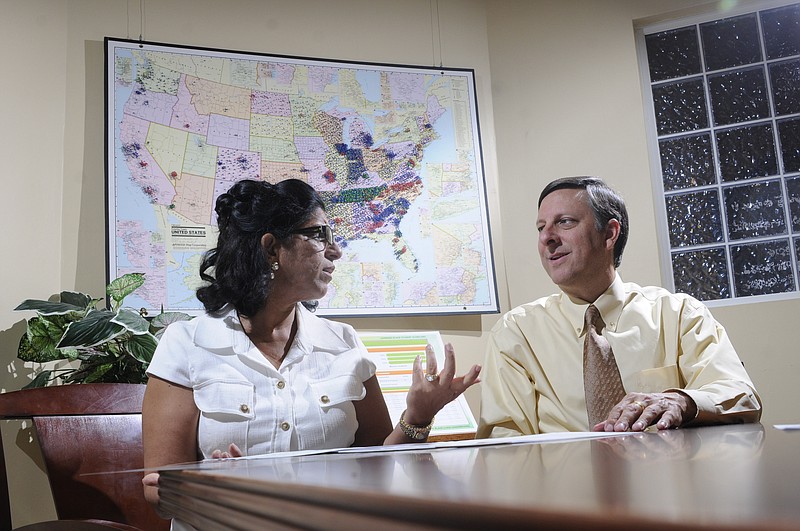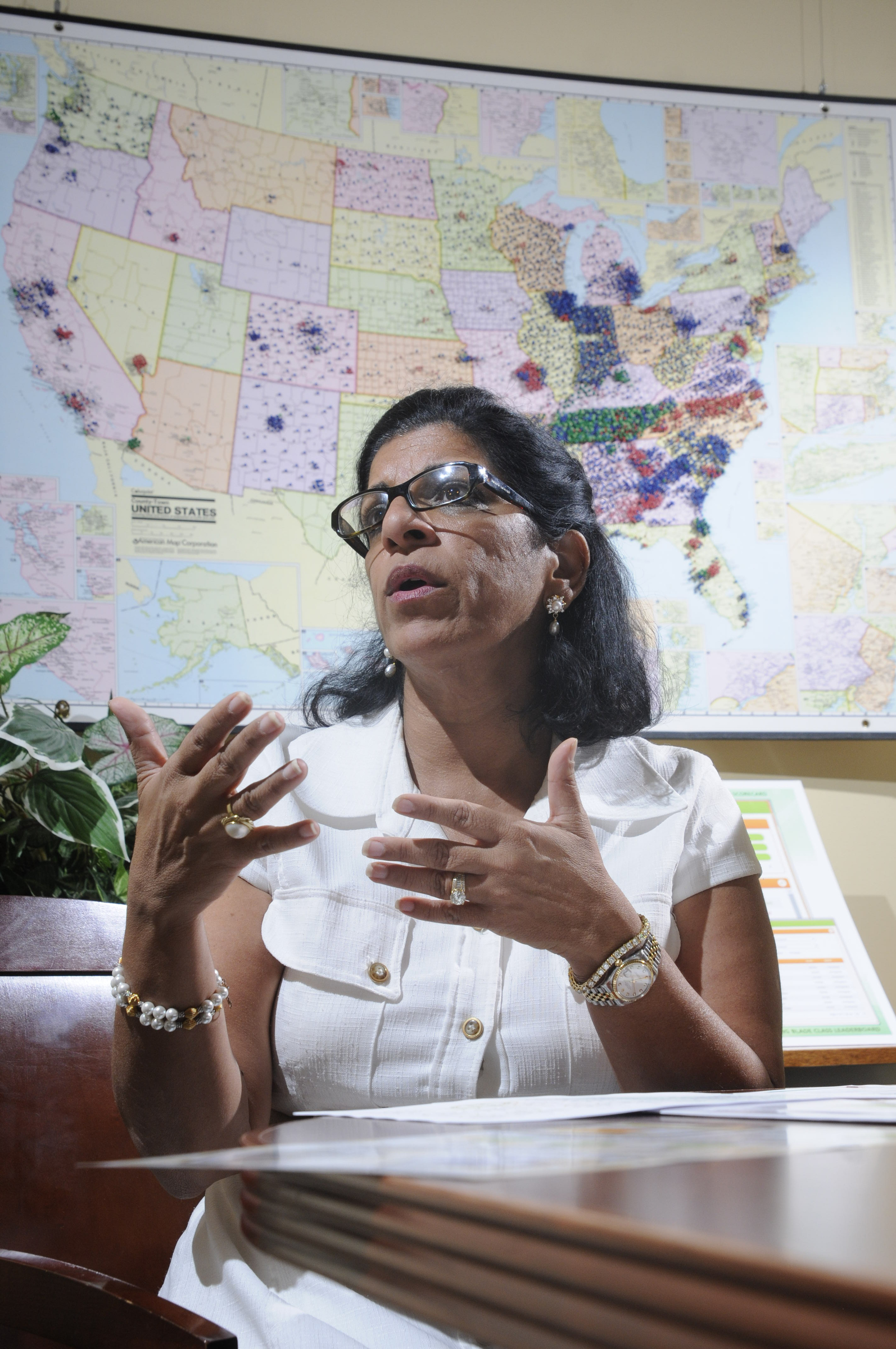By the numbers
What students say after taking Learning Blade:* 71 percent said they learned about new careers* 69 percent said what they learned in the program will be useful later in life* 57 percent said they are interested in taking advanced math classes in high school* Twice as many students who take the class say they want to be engineers or scientists compared with those who don’t participate in Learning Blade.Source: Surveys of students after participating in Learning Blade in Tennessee.
Mission-based approach
The Learning Blade gives students one of 11 missions to accomplish, either as individuals or teams, using a variety of science, math and engineering skills. Among the missions are:* Dolphin rescue: Creating an artificial prosthetic tail* Haiti orphanage: Building a home for children displaced by an earthquake* Energy sources: Upgrading energy sources to replace an old coal power plant* Fresh foods: Increasing production of local foods in a community* Transportation congestion: Improving traffic flow in a city* Flu outbreak: Use GIS to predict where flu will spread* Lightweight aircraft: Develop long-range lightweight aircraft to deliver relief around the worldSource: Thinking Media
From helping an injured dolphin swim again to building an orphanage damaged in the Haiti earthquake, middle school students using the online training program Learning Blade are discovering the value and fun of work in science and math.
Chattanooga entrepreneurs Dane and Sheila Boyington, both chemical engineers who previously developed a successful vocational testing and training program, hope their newest online training tool does more than just excite sixth-, seventh- and eighth-graders about finding engineering solutions to their fictional online missions. By showing students why math, science and technology are important to solving a variety of problems, the pair think Learning Blade can help cut America's deficiencies in science, technology, engineering and math - the so-called STEM fields where America needs more talent.
"Our goal is to see a change in this country," Sheila Boyington says. "We want to see our kids interested in these high-demand fields, which not only offer the best job and income prospects for many people but also are key to our future economic growth."
The program, which is already in more than 700 middle schools across the country, employs an entertaining, game-based format to entice students to pursue "missions" to solve challenges using both reading and science skills. The games can be competitive, enjoyable and purposeful in demonstrating how STEM disciplines help solve real-world problems.
Nearly 42 percent of Americans say they would have considered taking STEM courses if they better understood the career path earlier in life, according to a national survey by Emerson Electric Co.
Sheila Boyington, the daughter of an Indian engineer-turned-entrepreneur, and Dr. Dane Boyington, who was inspired to pursue chemical engineering by a high school teacher in Lakeland, Florida, have each been interested in engineering since they met in a chemistry class at the University of Florida. After they both obtained graduate degrees from the University of California at Berkeley, they moved to Chattanooga when Dr. Boyington joined the Chattanooga Dupont nylon plant as director of research for one of the company's divisions. After more than eight years with Dupont, however, the Boyingtons decided to create their own company with the backing of Sheila's father.
The venture, known as Thinking Media, was started in 1996 to help develop online courses and tests to help train and assess skills of those entering the workforce or changing jobs. They sold their first venture, Key Train, to ACT in 2011. Rather than retire early with the riches of their first venture, the couple used proceeds from the sale of Key Train and worked with national leaders on STEM education from business and academia to develop the Learning Blade.
"This has always been a passion for us, and we recognized that to get more interest in STEM fields and to fill this critical skills gap, we needed to get to students before high school," Sheila Boyington says. "We're not doing enough at an early enough age."
The Boyingtons' Key Train and its Work Key components developed by Thinking Media have been used to evaluate and test vocational skills for more than 4 million Americans. Sheila Boyington thinks this new venture could be even more successful and important.
"Research shows that the No. 1 reason that kids do not major in these high-demand, STEM fields is not because they don't like math or they are not good in science, it's because they don't know about these careers," she says. "In studying this challenge, we saw that if we could develop a platform that would be easy for schools to implement, we could be successful in getting more kids exposed to these careers, and that could make a real difference in the career paths that they take."
The middle school lessons are based on 11 different self-guided missions, allowing students to work on STEM-based activities at their own pace in the classroom or during after-school programs. Even the Department of Defense has gotten interested in the Learning Blade, paying for a light-weight air mission for more than 30 schools in Kentucky.
A University of Massachusetts study showed that 94 percent of students make critical decisions when they are in the middle-school grades.
Learning Blade is now in more than 700 schools nationwide and Boyington is eager to expand that number. Last year, the program was implemented statewide in Tennessee, and Arkansas will add the program in all of its middle schools in the 2016-2017 school year.
"This program will help our young learners master the fundamentals required for an array of specialized and highly competitive STEM careers," Arkansas Gov. Asa Hutchinson said in an announcement in June. Hutchinson said the Learning Blade program will coordinate with the state's computer science initiative to offer coding classes at every Arkansas public high school by exposing middle school students to STEM education concepts.
So far, studies by Battelle show the program is helping to double the number of students who say they want to be engineers. At Chattanooga Girls Leadership Academy, Learning Blade has been part of a school-wide effort that has boosted science proficiency levels from under 60 percent in 2013 to more than 68 percent by 2015. Among CGLA students who participated in the Learning Blade missions, 37 percent said they are more likely to pursue a STEM career.
That's especially pleasing for Sheila Boyington, who has been a leader in the Million Women Mentors program designed to advance women and girls in STEM careers.
For all the efforts to promote gender equality, surveys by the American Association of University Women found only 26 percent of computing professionals were female in 2013 - down from 35 percent in 1990. While the share of women in engineering has risen since 1990 when only 9 percent of enginers were women, today only about one in eight engineers is female.
"We have to do better, and we think this program will help," Sheila Boyington says.

